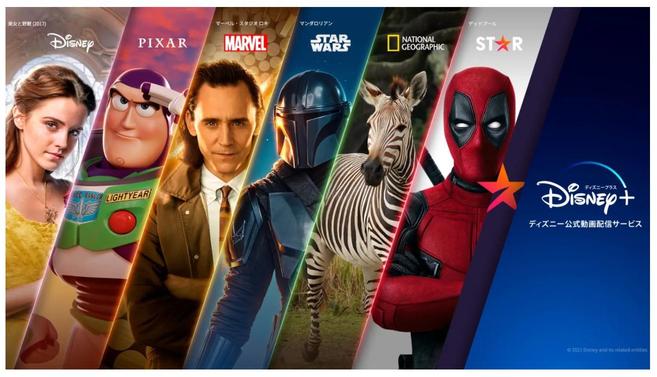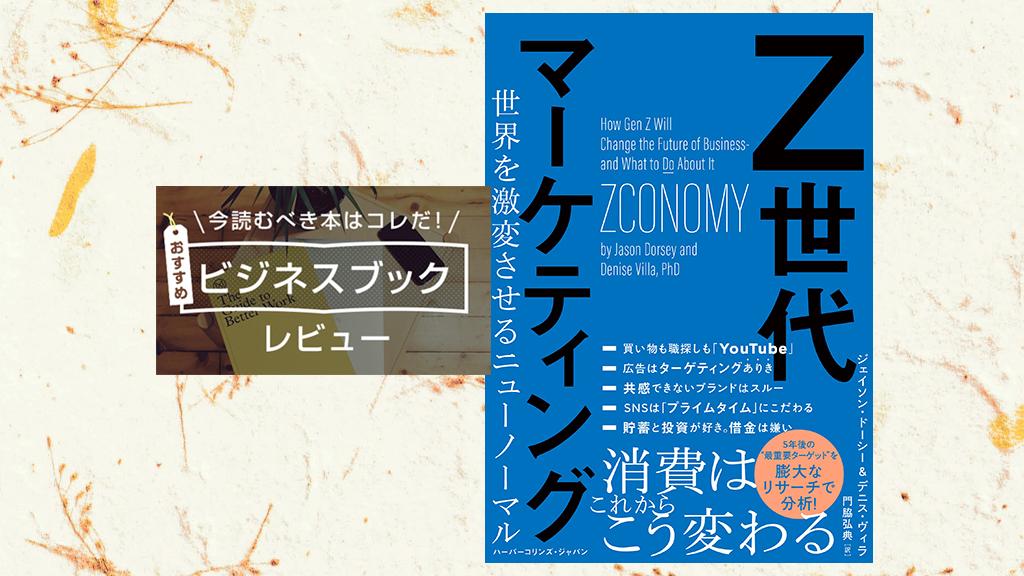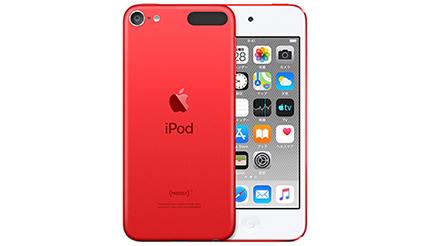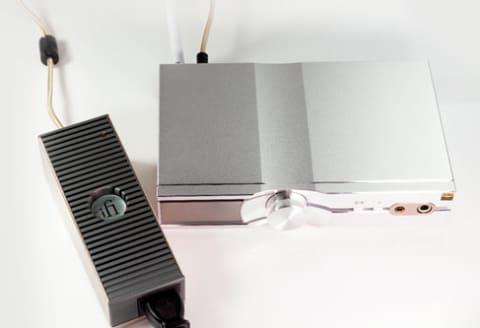Jam for Freedom rally in Hyde Park, London this June (Photo by Martin Pope / Camera Press / Redux)
This spring, the car that the group used to bring in musical instruments became almost unusable due to an accident. So McLaughlin launched the GoFundMe (crowdfunding site) page to cover transportation, petrol and legal proceedings. One day, he was surprised to receive a donation of £ 1000 from Eric Clapton.
"I thought he was a fake," McLaughlin recalls. However, when I sent an email to the account that was included in the donation, I received an email from the 76-year-old guitar hero himself. "Hey Eric. Your deeds are wonderful," said McLaughlin. The two spoke on the phone at a later date, but without McLaughlin's knowledge, Clapton offered Jam for Freedom a van, the White Volkswagen Transporter, owned by his family. He also donated a fortune to buy a new car (McLarin didn't reveal the amount) and even said, "I want to join the group at some point." And now, thanks to Clapton's support, Jam for Freedom is free to spread the message throughout the UK.
Risk of being a "vaccine skeptic"
Once upon a time, Clapton was reluctant to speak of political thinking. When I was interviewed by Rolling Stone magazine in 1968, he said, "I'm doing what I expected, but when it appears in a newspaper or something, the world has to do what I say. I think I shouldn't. That's wrong, I'm just a musician. It's great to understand my music, but I don't have to try to get it in my head. "
But in the last few months, Clapton has become the flagship of vaccine skeptics. In the words of Dr. Anthony Fauci, the head of US infectious disease control, these communities are "part of the problem, because they are the mediators that infect someone with the virus." Although he has never overtly denounced lockdown, he said, "Live music may not come back anymore," and participated in three Van Morrison songs that became the anthem of the lockdown protest. He also details through his friend's social media account the "disastrous" experience after two vaccinations with AstraZeneca ("the vaccination is safe for everyone" is a propaganda. "That's it," he said.
Despite the surge in infections and deaths, Clapton recently embarked on a national tour of Republican states. He needs almost no vaccination certificate at any venue. Meanwhile, conservatives have sent a storm of praise to the icons of the 1960s, who enjoyed a "sex, drug, rock and roll" lifestyle more than anyone in their generation. In Austin, he posed in front of the camera in the dressing room with Governor Greg Abbott of Texas, who opposes vaccination requirements. Some people felt betrayed when they saw the infamous Governor and Clapton in the photo with a tough stance on abortion and voting rights. "I deleted all Clapton songs." A comment on Governor Abbott's Twitter feed said: "I'm good at playing the guitar, but a person like Kid Rock, I'm not involved with him anymore."
Governor Greg Abbott of Texas (center of the photo) also attended a recent Clapton concert in Austin. He is famous for putting pressure on abortion and voting rights (Photo via Gov. Greg Abbott / Twitter)
At the end of his career, which may be his last activity, Clapton insists on his theory and runs the risk of losing some of his reputation and enthusiastic fan base. .. "If he suffered from a vaccine side reaction, it was a disaster," said Bill Oaks, who ran Clapton's label RSO in the 1970s. "But most people obviously don't. It's a shame that many young Rolling Stone readers will know him for the first time in an article like this. He's a great person, but he's old. It's treated as such a headline "(Clapton officially declined to comment on this article through his agent).
Even those who haven't been so interested in Clapton until now are twisting their heads, "What the hell is he thinking?" It seems that his fellow musicians don't know how to take it. Queen Brian May called vaccine skeptics like Clapton "eccentrics." Music industry collaborators and friends who have worked with Clapton for many years refrained from commenting on Rolling Stone about his current beliefs. As the manager of a prominent musician says, "I didn't want him to touch this issue."
For a long time, Clapton's achievements include being an important person who brought blues and reggae to mainstream culture, and his divine guitar playing technique (in the mid-1960s, on the London subway, " It's no wonder that the words "Clapton is a god" were written on the spray can). Others may find the tragic tragedy of the death of his four-year-old son and the inspiring catharsis of "Tears in Heaven." But the current turmoil has led to a move to re-examine Clapton's past behavior, including racist rants early in his career. Why did the compliments and sympathies for him turn into astonishment and betrayal?
What has changed? Or has nothing changed?
Racist remarks, confusion of fans
In the summer of 1976, Dave Wakeling intended to know Clapton well. Wakeling, who later formed English Beat, a pioneer of the UK ska band, was only 20 years old at this time. He's a big fan of Clapton, hitchhiking from his hometown of Birmingham to London and even going to Hyde Park to see Clapton's Blind Faith.
However, in August 1976, when he went to see Clapton at the Odeon Theater in Birmingham, Wakeling was taken aback. Unlike most of his rock buddies, Clapton never touched on topics such as the Vietnam War, but he was clearly drunk that day and began complaining about his immigrants. The concert of the day was neither filmed nor recorded, but according to an article at the time (and Wakeling's memory), Clapton began making immoral racist remarks on stage. The person himself has never denied the remark at this time. He said at this time that Britain would "colonize within 10 years" as a result of the influx of immigrants. He continued the shit that "foreigners" should leave the British Empire, and said, "Get out of Wog ... Get out of the redneck" (Wog is an abbreviation for Golliwog, a black-faced doll. , Pejorative for non-white descent).
"As the story went on, I thought,'Is this a joke?'" Wakeling recalls. "Soon it became clear that it wasn't a joke ... a kind of buzz in the auditorium began to occur. He continued to buzz and the buzz grew louder and louder.'What is he really saying? 』…… When everyone gathered in the foyer after the performance, it was as noisy as at the concert." What happened to him? That bastard! "
Wakeling was even more indignant when Clapton expressed his support for British conservative Enoch Powell on stage. Powell is a fascist known for his poisonous tongue and is a controversial politician who gave a "River of Blood Speech" in Birmingham in 1968, condemning the influx of immigrants. Wakeling felt that Birmingham was more integrated in recent years because white and black workers worked together in the factory.
70's Clapton (Photo by Evening Standard / Hulton Archive / Getty Images)
At that time, writer Caryl Phillips (who has roots in Caribbean immigrants) was also in the audience. He was a high school student at the time and admired the fusion of reggae and blues, especially in Clapton's work. "For me, Clapton was a symbol of crossover. There are people like me on the other side. I mean, I'm a young black man who likes white music, he's black. I thought he was a white man who loved music, "says Phillips.
But like the crowds in Odeon, Phillips flirted with Clapton's long tongue. "He said a few things like'go home'and then played a couple of songs," he recalls. "I remembered that I was saying something like a drunk, and I started talking again a few songs later. I never dreamed that someone like him would talk like that on stage. I felt like there was a toxic cloud all night long. " Like the few blacks in the audience, Phillips felt that "after all the eyes around him were focused on him, they all turned their eyes away."
Clapton's remarks also shocked the band members. "Eric's remark was water in his ears," recalls George Terry, who was in the Clapton band at the time. "As far as I know, he never told me or other members what he was talking about at the concert."
Rock's biggest colonialist
Until then, the relationship between Clapton, the blues, and black culture was generally viewed favorably. He was raised in Sally, England under his grandmother and began practicing blues licks on the guitar when he was a teenager. His performances at The Yardbirds, John Mayall & The Bluesbreakers, and Cream ooze the teachings he learned from listening to blues guitar masters such as Muddy Waters and Jimmy Reed. Unlike his other musical companions, Clapton had a deserved respect for his musical ancestors. Clapton's cover of Waters (or Bob Marley)'s songs filled Waters' bosom as well as himself.
"He plays well," says Chicago blues legend Buddy Guy. He first met Clapton in the 1960s and has been jamming with him many times since. "If you can play well, it doesn't matter if it's big, fat, or noppo. He just plays the strings. It's the right time. That Englishman explodes the blues and tells us. I took it to a dimension I couldn't do. I wish I had been so popular. Then maybe I didn't have to work hard. "
Clapton is also said to have been admired by Jimi Hendrix's skills and was overwhelmed when he died. But in an interview with Rolling Stone magazine in 1969, he talked about Hendrix in a discriminatory way that was a fashionable slang at the time. Perhaps worse, he preferred to use racial stereotypes. "When he first came to England, you see, the English guys are vulnerable to spades. I love magical and sexual things. Everyone is crazy about that. England They all still think Spades are big. When Jimi came in, he made the most of it. Hey. Everyone was captivated. Me too. At all. "
Clapton, who has lived a turbulent life with heroin and alcoholism, a treatment center in Antigua, and the death of his son in 1991, has been treated by the media as a sympathetic figure. Rolling Stone magazine is no exception, and he has been on the cover eight times since 1968. Most recently, in 2015, he ranked second in "Rolling Stone Magazine's 100 Best Guitarists of All Time." Powell's remarks in Birmingham were described by an English writer at the time as "an episode reminiscent of Clapton's painful stupid honesty."
But those who heard Birmingham's remarks that day had a completely different impression of Clapton. "I was just shocked," said Red Saunders, a writer and performer for Ajipuro. He was shown a copy of an article reporting Clapton's remarks shortly after the concert. "We need to understand that Enoch Powell is a so-called symbolic figure in this country. He is on the same level as Governor Wallace of Alabama. A super-conservative, enthusiastic old British imperialist. is". Powell's "River of Blood Speech" gave birth to the white nationalist movement. Following Clapton's support for Powell's ideas, Saunders wrote in NME. "What's wrong, Eric? You must have suffered a brain injury ... admit, half of your music is black. You're rock's biggest colonialist. You're good. Maybe he was a musician, but wouldn't he be in his current position without blues and R & B? "
Pete Townshend at the Rock Against Racism Festival in London in 1979. The founding members performed in Europe and the United States for five years, accompanied by The Clash and Steel Pulse. (Photo by Virginia Turbett / Redferns / Getty Images)
Rock Against Racism (RAR), which was founded after Mr. Saunders's letter to the editor, gave concerts in Europe and the United States for about five years in reaction to Clapton-like remarks. "In fact, he changed the world in the opposite direction, and he was good at that," says Wakeling (I've played English beats once in RAR). Saunders remembers that when Pete Townshend played at RAR in the summer of 1979, he asked if he would bring Clapton as well. However, Mr. Saunders claimed that Clapton's apology came first. Clapton never appeared in the end, although no specific reason was given to Mr. Saunders.
Some of the people who knew Clapton at the time and worked with him (and rarely met him since then) argued that the rant in Birmingham was not his true intention. "It's a misunderstanding to think he's really out there," Oaks said. "It's because of alcohol. I think he didn't know what the consequences of his remarks would be in a situation that was out of control at the time. I don't think it's true. He wasn't serious. " In an interview with Rolling Stone magazine in 2017, Clapton himself said, "When he was drowning in medicine and liquor, he had no choice but to face himself." "I didn't really understand that I was in that state, and I didn't even have a person to say'stop'." There may be some reason for the latter statement. He was in the privileged class of rock, and he was always free to do what he liked, when he wanted, without thinking about the future.
Correspondence of Clapton who turned over and over
Racist remarks aren't the only thing that has taken people like Wakeling and Saunders out of the blue. Clapton's response to that is also true. Clapton apologized by sending a handwritten letter to the music newspaper Sounds after the on-stage rant was reported in the British media. "I apologize to all the foreigners living in Birmingham ... just (as usual) when I was about to catch a drink and finally drink, a foreigner pinched my girlfriend's ass, so I'm a little shy. I felt it. "(He's trying to say that a rich Saudi Arabian used his girlfriend Pattie Boyd to color it). But he also added that he favored white supremacism. "I think Enoch is the only politician who has enough guts to move the country." In an interview in the same issue, he revisited the rant in Birmingham. "I actually thought it was pretty interesting," he compared to Monty Python's skit. It was instigating. ")
Eric Claptons shoddy letter of apology after being a massive racist on stage in 1976 pic.twitter.com/kt5DEsDg9m— Letters of Note (@LettersOfNote) September 19, 2017
In his 2007 memoirs, Clapton revisited the case in question, saying that Birmingham's on-stage remarks were "never intended for racism. Rather, the government's policy on cheap labor at the time and the obvious. It was a blame for the cultural turmoil and overpopulation caused by greedy policies. " For Mr. Saunders and the people in the RAR community, this explanation was "ridiculous." In fact, since we used the derogatory term "wog," there seems to be little excuse.

In the United States at the time, the Birmingham case was rarely reported, but it was revisited in the official documentary film "Eric Clapton: Life in 12 Bars" released in 2017. In it he finally acknowledged his remarks and talked about the bottom of his career. Clapton blamed heavy drinking at the time, citing his black friends in the movie's promotional coverage as well as in the play, saying he wasn't unaware of racism. "I did something really terrible," he told a medium. "I was a terrible person," admitting that the rant in Birmingham was "totally" racist, unlike in the past. He said, "I can't make excuses. I did the worst thing," he added, but again, "I actually found it interesting."
"I didn't really care what others said at the time," said Buddy Guy, who didn't know what happened in Birmingham until recently. "Whites just said this, blacks just said. No matter who says what or how they feel, I don't care at all."
But for those who were in Birmingham that night, and those who heard the story at the time, Clapton's explanation only sounds empty. Wakeling has never heard Clapton's songs since then, except for two songs from the Cream era ("Badge" and "White Room"). Similarly, Phillips hasn't touched the old Clapton records. "Everyone knows that the power of sake can't make a sophisticated lie," Wakeling said. "Sake is what makes you speak loudly at the wrong time, in front of the wrong person."
Conspiracy theory, health problems, alienation
If you've read Clapton's memoirs carefully, his recent changes may not come as a surprise. He wrote in the book, "It was natural for me to leave it to anger and stab the authority," admitting that there is a tendency for "conspiracy phobia in all this kind of thing, including politics." ing.
Certainly, Clapton seems to be easy to swallow. In his memoirs, he details what happened when a "woman with a strong European accent" called her home in the 1980s. The woman said she knew that Clapton wasn't doing well with Pattie Boyd (then wife), a funny ritual- "cutting her finger to shed blood, on a cross with Pattie and her name on it. He persuaded him to do all that "sneaking his blood and casting strange spells in the middle of the night" (at the woman's suggestion, he flew to New York and spent the night with her, finally doing such a silly thing. I also noticed that Boyd did not return).
"Eric Clapton warns against vaccination" I thought I could never play the guitar "" (Photo by Gareth Cattermole / Getty Images)
Today's public view of Clapton is exacerbated by global pandemics, fake news, and his own health problems. Health (especially his hand condition) has been more talked about in the media over the last few years than Clapton's latest album. In 2016, he confessed to Rolling Stone magazine that his chronic illness was "a troublesome neurosis affecting his hands." He told the magazine the following year that he had "an eczema from his head to his toes and his palms peeled off." He also had terminal neuropathy, which caused inflammation and pain in his arms and legs due to damage to his terminal nerves.
Since last year, Clapton has begun watching a video of chemical engineer / writer Iver Cummins, who questioned the British government's anti-pandemic measures. "I wanted to keep quiet, but I'm enthusiastically following his channel," Clapton confessed. He was the first to reveal his feelings when he participated in Van Morrison's song "Stand and Deliver," which linked personal freedom and lockdown. The lyrics are "Do you want to be a free person / or a slave?" "We should stand up and express our intentions, because we have to find a way out of this turmoil, and it's not worth considering an alternative," Clapton said in a statement about the collaboration. It's a strange coincidence that Morrison was a special guest at Clapton's Birmingham show in 1976).
Clapton's momentum accelerated as he began to focus on his own comments. He posted comments through the social media account of Robin Monotti, a friend of the architect and also a vaccine skeptic. Oracle Films, a website that claims to "fight for open discussions and freedom of information now in the face of crackdowns by governments around the world and censorship by major IT companies," also said that both hands were "totally useful" after the second vaccination. "I can't get rid of it," he said. "I thought it might get worse as I got older in my 80s and 90s," he said. "This guy ... in 10 steps, it suddenly went up from 3 to about 8 or 9. Severe pain, chronic pain ... the immune system was damaged and the whole body trembled again." According to Clapton, both hands did not move for three weeks. He then told Oracle Films over the past year that he "may feel alienated" with his peers and family.
According to Dr. Matthew Fink, MD, director of neurology at Weil Cornell Medical College, it's not surprising that patients with neurotic symptoms like Clapton will have this reaction. "As long as vaccines are widespread, there will always be a few cases we call post-vaccination inflammatory or post-infection inflammatory disease," said Dr. Fink, especially the AstraZeneca vaccine, which is a rare neurological disease. He added that it was associated with various symptoms. "It can have a big impact on your hands and feet, so if you're a guitarist, you're pretty sure it's affected."
However, Dr. Fink, who loves Clapton's work during the Cream era, is concerned about the content of his message as well as its originator. "For this reason, not all vaccines fail, because in reality, vaccines are a life-saving treatment for the vast majority of people who receive them," he says. "So far, the benefits outweigh the harms. I would never say that I should stop vaccination." Due in part to vaccination skeptics, only 56% of the total population is currently vaccinated in the United States.
Trump supporters also welcome Clapton
After Clapton offered to lend his family-owned van to Jam for Freedom, McLaughlin went to Clapton's recording studio in London to meet him in a casual blue sweater and moccasin shoes. McLaughlin is also cautious about vaccines. "It's not the vaccine, I haven't received it yet," he says. "Unless you have a lot of money, you don't feel like taking a clinical trial of a new technology. We just say,'Let me choose what to put into my body and don't force me.' It would be suspicious if so many people were to say this or that loudly. Many people are in danger. "
According to McLaughlin, Clapton still has the aftereffects of the vaccine and he told him he hadn't played the guitar for months. "I wanted to have a jam session with him, but it was difficult to play because of his medical condition at that time. It's impossible to play outside even though his fingers are cold due to side reactions," McLaughlin said. "You can imagine how stressful it was for him." Clapton took pictures next to McLaughlin and Van.のちにJam for Freedomは、その写真をソーシャルメディア・チャンネルに投稿した。
クラプトンの隣に並んだ、Jam for Freedom創設者のキャンベル・マクローリン(Courtesy of Jam For Freedom)
1976年の暴言に対するぶざまな対応と同様、クラプトンは今回も黙ってはいなかった。彼は声明を発表し、今後「選別された観客」の前では演奏しないと宣言した。つまり、ワクチン接種証明が要らない会場でしか演奏しないというのだ。
9月の全米ツアー初日の直前、彼はワクチン接種への抗議と思しき新曲「This Has Gotta Stop」を発表した。”何かおかしなことが起きていると思った/君が芝生に寝転がり始めると/俺の手は動かなくなり、汗が噴き出す/泣きたい気分だ、もう二度とごめんだ”。さらに強調するかのように、ミュージックビデオのアニメーションでは一般市民が操り人形として描かれている(数週間後、彼はこの曲のニューバージョンを発表した。ご想像の通り、サックスソロと追加のヴァースを担当しているのはヴァン・モリソンだ)。
「イーノック・パウエル騒動の二の舞のようです」とオークス氏は言う。「彼が実際に世界情勢に牙をむいたのは、私が思いつく限りではあれが最後でした。彼は基本的に胸の内を明かさないタイプですからね。あれは明らかに昔の話ですし、大量のアルコールが引き金でした。今回は言い訳できません」
クラプトンはOracle Filmsとのインタビューで、自分の意見を表明すると「トランプ支持者だというレッテルを張られる」と不満を漏らした。だが、彼の旧態依然な気質は少なくとも2007年にまで遡る。この時クラプトンは、ブライアン・フェリーやスティーヴ・ウィンウッドとともに、イングランドのバークシャーの古城で行われた「食料、農業、カントリースポーツ」を推奨する団体Countryside Allianceのチャリティコンサートで演奏した。ここでいうカントリースポーツには、狩猟犬を狐に向かってけしかける野蛮な狐狩りも含まれている。イギリス政府は動物虐待と狩猟が象徴する階級格差を理由に、この伝統を廃止している。
当時クラプトンの代理人は、彼がAllianceを支援していることを認めたが、「彼自身は狩りをしない」と述べた。同団体に憤りを覚える音楽仲間は今もいる。「エリック・クラプトンは大好きだ。彼は僕のヒーローだが、彼とはいろいろな点で意見が異なる」と、ブライアン・メイはインディペンデンス紙に語った。「彼は娯楽で動物を撃っても構わないと思っている人間だ。そこが僕らの意見が合わないところだ」。その一方で、クラプトンの姿勢に別のグループが味方に付いた。上述のコンサートのおかげで、全米ライフル協会は「エリック・クラプトンも狩猟を支持」と、サイトにでかでかと謳った。
ワクチン懐疑派の眼には、共和党の州で、屋内アリーナで演奏することは抵抗運動と映った。全ページ白紙のベストセラーとなったノベルティ本『Reasons to Vote for Democrats: A Comprehensive Guide(民主党に投票するべき理由:徹底ガイド)』の著者でもある保守派の若手評論家マイケル・ノウルズ氏は、「エリック・クラプトンはファウチ博士よりもずっと信頼できる人間だ」とツイートした。ローリングストーン誌の取材に、ノウルズ氏はこうした評価をあらためて表明した。「クラプトンは科学だの衛生だののことを、もったいぶって話しているわけじゃありません。彼はワクチンを打った自分の経験に基づいて話しているんです」と彼は言う。「いろいろな意味で、エリック・クラプトンはこの問題やその他の問題に関して、ファウチ博士よりもずっと信憑性があると思います」
現在31歳のノウルズ氏は大半のクラプトン・ファンよりも若い。医療制度に対するギタリストの姿勢はロックのルーツに根差している、と彼は考える。「すごいことです」とノウルズ氏。「これぞまさに本物の、権威に物申すロックスターです。それがかつてのロックンロールの姿ですよ。ロックも年を重ねるにつれて、社会に蔓延する確立された意見に甘んじるようになってしまった……エリック・クラプトンは、オーディエンスが医療上の判断は自分で下せると信頼しています。この国では昔はそれが当たり前だった。今ではもう、そうではなくなってしまったようです」
Jam for Freedomのマクローリンも状況をまったく同じように捉えている。クラプトンとの対話で、さらにその思いは深まった。「僕らは実質的に、60年代に彼や仲間たちがやっていたことをやっているんだ、と彼は言っていました。自由を擁護し、政府や社会の支配から逃れるのだと」とマクローリンは言う。「彼は僕らに何度も言いました、『これが俺たちのやっていたことなんだ』と」
クラプトンの思想とどう向き合うべきか?
こうしたこと全てがきっかけで、ファンは人々の命を危険に晒そうとしている音楽家のレガシーに苦悶する羽目になった。「解せませんね、ずっと彼はリベラルだと思っていました」と言うのは、長年クラプトンと仕事をしてきた音楽業界の某ベテラン。「彼とは何度も顔を合わせてきました。とても紳士的で、成熟していて、話しぶりも丁寧だし、落ち着いている。だからショックなんですよ。彼のオーディエンスの大半がショックを受けています。もう彼を(コンサートで)見ることはないでしょう。絶対に。ファンのことを気にかけておきながらワクチンに反対するなんてありえますか? 彼はライブ・エンターテインメント業界に携わる人間なんですよ?」
我々はクラプトンの意見と音楽をどう受け止めればいいのか? 「Layla」の狂おしいほどの情熱、『461 Ocean Boulevard』のリラックスしたグルーヴ、クリームで演奏したロバート・ジョンソン「Crossroads」の劇的な再解釈――今も語り継がれる彼の業績を、二の足を踏むことなく堪能することはできるのだろうか?
コネチカットの人気クラシックロック局WPLRで、午前の番組を担当するラジオDJのチャズ(本人の希望により仮名)は、クラプトンは「ラシュモア山の記念碑」に匹敵する人物だと言う。だが彼も、かつてのヒーローの見当はずれな発言に当惑している。「彼は音楽で世界にたくさんの幸せを届けてくれました」とチャズは言う。「もし一家団欒の夕食の席で、祖父が僕と全く意見が合わないことを言ったとしたら、僕は無視して『おじいちゃん、マッシュポテトを回して』と言うでしょう。今回も全く同じ気持ちです」
9月13日、クラプトンの全米ツアー初日。テキサス州フォートワースのディッキーズアリーナに流れ込んだ1万2000人強のなかには、まさにそうした食事の席のような思いをしている人もいた。「政治の話ですか、その手の質問には答えたくないですね」。クラプトンの意見について尋ねると、あるコンサート参加者は激昂した。この時フォートワースのあるタラント郡は、パンデミック発生以来テキサス州で2番目に多いコロナ感染者数を記録していた。州の感染者は300万人、そのうちタラント郡の感染者は30万7000人。だが会場では、マスク着用は「強く推奨」されているだけで、会場内で着用している人はほとんどいなかった。集まったクラプトンのファンは彼を支持しているか、もしくは口にしたがらなかった。
「彼は政治的スタンスを取っているわけじゃないと思います」。クラプトンのコンサートは初めてという、テキサス州グランベリー出身のデイヴィッド・ヘイナーさんはこう言った。「彼は与えられた発言力を利用して、健康と安全について意見を述べているんです。僕はまったく気になりません」(「それで具合が悪くなる方はお気の毒です」とフィンク博士。本稿執筆時点で、ツアーと感染者の関連性は報告されていない)
「エリックの発言を見たかい?と言ってきた人がいたよ」とバディ・ガイも言う。「彼のような有名人が発言すると、世間は耳をそばだてる。俺たちが間違いだと思うようなことでも、彼をずっと応援してきた他の人間は、彼が正しいと考えるかもしれん」
2週間にわたるツアーの間、クラプトンは一度も反ロックダウン楽曲を演奏しなかった。彼は「I Shot The Sheriff」「Layla」「Tears in Heaven」などの定番曲や、いくつかのブルースのカバーに徹した。観客に語り掛けることも、ワクチンや政治観について口を開くこともほとんどなかった。だが、彼はギターを手にしながら、かつてと同じように文化的市民闘争の岐路(crossroads)に立っている。
Additional reporting in Texas by Kelly Dearmore
From Rolling Stone US.




